 W
WOskar Johann Viktor Anderson was a Russian-German mathematician of Baltic German descent. He is best known for his work on mathematical statistics and econometrics.
 W
WErnst Behm was a German geographer and statistician who was a native of Gotha.
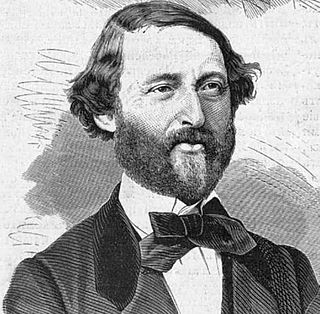 W
WMaurice Block ; 18 February 1816 – 9 January 1901) was a German-French statistician and economist.
Johann Georg Büsch was a German mathematics teacher and writer on statistics and commerce.
 W
WAugust Friedrich Wilhelm Crome was a German economist and statistician, and Professor of Cameralism at the University of Giessen. He is known particularly for his 1782 product map of Europe, which is considered by some as the earliest known printed economic map and thematic map.
 W
WFriedhelm Eicker is a German statistician and former professor at the University of Dortmund. He is known for his contributions in the development of heteroscedasticity-consistent standard errors.
 W
WErnst Engel was a German statistician and economist, famous for the Engel curve and Engel's law.
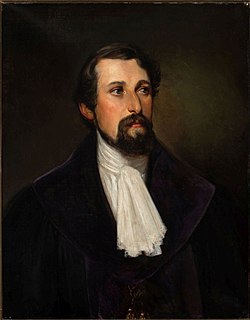 W
WJohannes Baptista Fallati was a German statistician and economist. He was born at Hamburg, where his father, originally of Rovigo (Venetia), was a merchant.
 W
WGustav Theodor Fechner was a German experimental psychologist, philosopher, and physicist. An early pioneer in experimental psychology and founder of psychophysics, he inspired many 20th-century scientists and philosophers. He is also credited with demonstrating the non-linear relationship between psychological sensation and the physical intensity of a stimulus via the formula: , which became known as the Weber–Fechner law.
 W
WUrsula Gather is a German statistician specializing in robust statistics. From 1 September 2008 to 31 August 2020 she was rector of TU Dortmund University.
 W
WGotthilf Heinrich Ludwig Hagen was a German civil engineer who made important contributions to fluid dynamics, hydraulic engineering and probability theory.
 W
WFriedrich Robert Helmert was a German geodesist and an important writer on the theory of errors.
 W
WFriedrich Benedikt Wilhelm von Hermann was a German economist and statistician.
 W
WClaudia Klüppelberg is a German mathematical statistician and applied probability theorist, known for her work in risk assessment and statistical finance. She is a professor emerita of mathematical statistics at the Technical University of Munich.
 W
WBärbel-Maria Kurth is a German statistician and epidemiologist. From 1998 to 2019, she headed the Department of Epidemiology and Health Monitoring at the Robert Koch Institute in Berlin. In 1998, she initiated the first nationwide health survey. Subsequently, she and her department established a continuous health monitoring system for Germany.
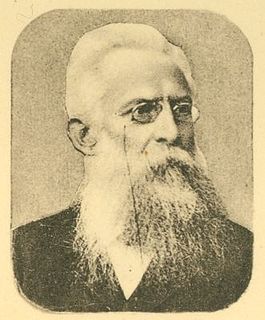 W
WErnst Louis Étienne Laspeyres was a German economist. He was Professor ordinarius of economics and statistics or State Sciences and cameralistics in Basel, Riga, Dorpat, Karlsruhe, and finally for 26 years in Gießen. Laspeyres was the scion of a Huguenot family of originally Gascon descent which had settled in Berlin in the 17th century, and he emphasised the Occitan pronunciation of his name as a link to his Gascon origins.
 W
WWilhelm Lexis, full name Wilhelm Hector Richard Albrecht Lexis, was a German statistician, economist, and social scientist. The Oxford Dictionary of Statistics cites him as a "pioneer of the analysis of demographic time series". Lexis is largely remembered for two items that bear his name—the Lexis ratio and the Lexis diagram.
 W
WKlaus Matthes was a German mathematician, known as the founder of the theory of marked and infinitely divisible point processes. From 1981 to 1991 he was the director of the GDR Academy of Sciences' Institute of Mathematics in Berlin.
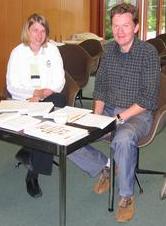 W
WGesine Reinert is a University Professor in Statistics at the University of Oxford. She is a Fellow of Keble College, Oxford, a Fellow of the Alan Turing Institute, and a Fellow of the Institute of Mathematical Statistics. Her research concerns the probability theory and statistics of biological sequences and biological networks.
 W
WGustav Rümelin was a German statistician, pedagogue and author.
 W
WAndreas Schleicher is a German-born statistician and researcher in the field of education. He is the Division Head and coordinator of the OECD Programme for International Student Assessment (PISA) and the OECD Indicators of Education Systems programme (INES).
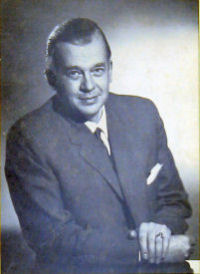 W
WErnst Friedrich Schumacher was a German-British statistician and economist who is best known for his proposals for human-scale, decentralised and appropriate technologies. He served as Chief Economic Advisor to the British National Coal Board from 1950 to 1970, and founded the Intermediate Technology Development Group in 1966.
 W
WMartin Schumacher is a German statistician. He was the head of the Institute for Medical Biometry and Statistics of the Medical Center of the University of Freiburg from 1986 until 2017.
 W
WDietrich Stoyan — mathematician, statistician; student of Mathematics at Technical University Dresden; applied research at Deutsches Brennstoffinstitut Freiberg, 1967 PhD, 1975 Habilitation. Since 1976 at TU Bergakademie Freiberg, Rektor of that university in 1991—1997; he became famous by his statistical research of the diffusion of euro coins in Germany and Europe after the introduction of the euro in 2002.
 W
WJohann Peter Süßmilch or Süssmilch was a German Protestant pastor, statistician and demographer.